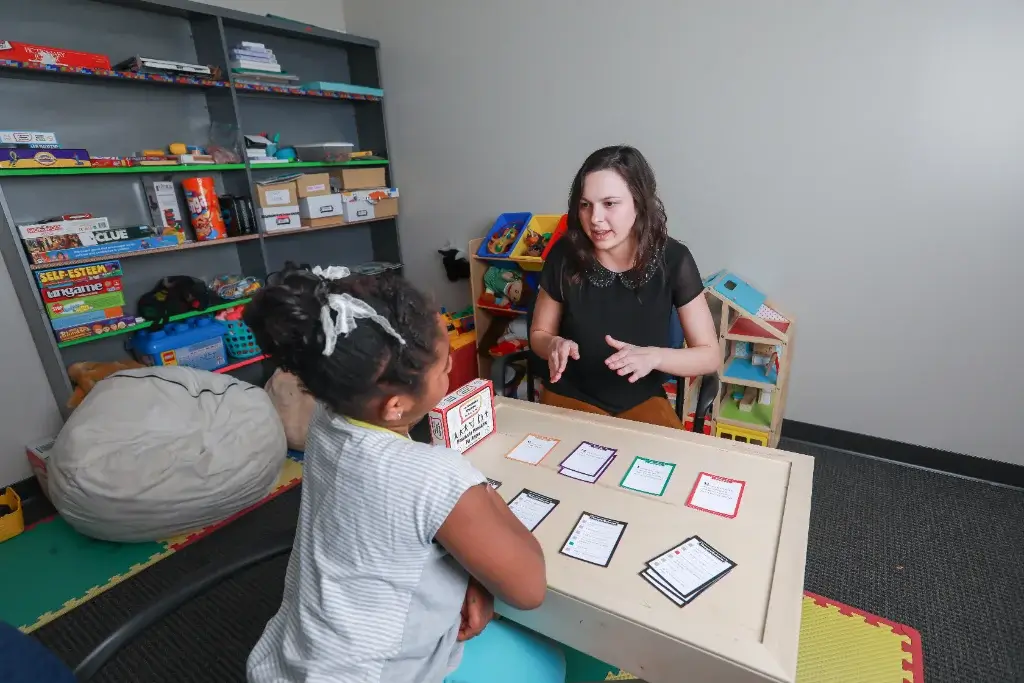
12 Types of Psychology: From Biopsychology to Sports Psychology
In one way or another, everyone deals with psychological or mental health issues at some point in their lives.
Request Information
For some, these challenges manifest as severe disorders that require continuous management and support. For others, mental health concerns might be more periodic, arising due to stress or other external factors.
In response to this intricate landscape of the mind, various psychology branches have emerged, each tailored to address specific aspects of mental health. So, read on as we explore different types of psychology and how they contribute to understanding and improving mental health.
Types of Psychology
From students navigating their educational journey to athletes striving for peak performance and from individuals in forensic cases to everyday life challenges, psychology is used everywhere. Below, we will explore 12 types of psychology, each offering specialized insights and solutions for various aspects of human behavior and mental health.
Biopsychology
Biopsychology examines the complex interactions between the brain, neurotransmitters, and behavior, emphasizing how biological processes shape thoughts and actions. Experts in this field investigate the impacts of brain injuries, neurological disorders, and the biological foundations of mental illnesses.
To become a biopsychologist, a doctoral degree in biological psychology is typically required, with programs expecting a solid academic or practical background in psychology or a related discipline.
Clinical Psychology
Clinical psychology is dedicated to the assessment, diagnosis, and treatment of mental health disorders. Such psychologists use various therapeutic techniques to help individuals manage and overcome psychological challenges. They commonly treat conditions such as depression, anxiety, PTSD, eating disorders, substance abuse, and severe mental illnesses.
Clinical psychologists often work in hospitals, mental health clinics, private practices, or academic settings, providing psychotherapy, conducting psychological assessments, and developing treatment plans. One must obtain a Psy.D. or Ph.D. in clinical psychology to practice in this field. Additionally, these psychologists must undergo supervised training and obtain licensure to practice professionally.
Cognitive Psychology
Cognitive psychology is dedicated to understanding mental processes and how they affect the way we think. Cognitive psychologists explore various cognitive functions, including perception, motivation, emotion, language, learning, memory, attention, decision-making, and problem-solving. Their work often involves conducting experiments and researching how these processes operate and interact.
While some entry-level opportunities are available to those with only a bachelor's degree, most careers in cognitive psychology begin with a master's or doctoral degree. Professionals in this field typically work in academic and research institutions, where they develop cognitive therapies and interventions. They also consult in various domains, such as education, technology, and human-computer interaction, applying their knowledge to improve educational practices, enhance technological interfaces, and better understand human behavior.

Counseling Psychology
Counseling psychology is a type of psychology that emphasizes assisting individuals in managing life stressors, enhancing their well-being, and achieving personal and professional goals. Counseling psychologists aim to support their clients through various therapeutic techniques and interventions tailored to individual needs. They work in diverse settings such as schools, private practices, community health centers, and businesses.
To practice counseling psychology, a Ph.D. in counseling psychology is generally required. However, in most states, independent practice also necessitates a state license. This licensing process ensures that counseling psychologists meet the necessary professional standards and are qualified to provide psychological services independently.
Developmental Psychology
This type of psychology studies the psychological growth and changes throughout a person's life, from infancy to old age. It examines how people develop physically, cognitively, socially, and emotionally over time.
Developmental psychologists are focused on comprehending the reasons and processes behind people's growth and change at various stages of life. They examine different life stages to ascertain how various factors impact development. To pursue this career, one typically needs a doctoral degree, as advanced research and clinical roles demand a high level of expertise.
Educational Psychology
Educational psychology is dedicated to understanding how people learn and retain knowledge, applying psychological principles to enhance educational processes and outcomes. Psychologists in this area investigate a variety of learning challenges, such as learning disabilities and ADHD, as well as other factors that impact learning and academic performance.
Most educational psychology jobs require at least a master's degree, but a doctoral degree is necessary to practice as a psychologist in most states. This advanced training ensures that educational psychologists are well-equipped to conduct high-level research, design comprehensive educational programs, and provide specialized support to students and educators.
Experimental Psychology
Experimental psychology employs scientific methods to investigate human behavior and mental processes, often through meticulously controlled experiments. This field is foundational to understanding the mechanisms underlying cognition, emotion, perception, and other psychological phenomena.
Experimental psychologists often work in academic and research institutions, teaching courses, mentoring students, and leading research projects. They also publish their findings in scientific journals, contributing to the broader knowledge base of psychology and influencing future research directions. The education requirement for many positions in this type of psychology is a doctorate degree in general or experimental psychology or a Ph.D. in General/Experimental psychology program that combines the two.
Forensic Psychology
Forensic psychology involves the application of psychological principles to legal issues, encompassing areas such as criminal behavior, court proceedings, and law enforcement. This interdisciplinary field bridges the gap between psychology and the justice system, providing crucial insights and expertise in legal contexts.
To become a forensic psychologist, one must follow a rigorous educational and training pathway. It begins with earning a bachelor's degree, typically in psychology or a related field, followed by obtaining a master's degree in forensic psychology and then a doctoral degree, which provides advanced training and research opportunities. Additionally, aspiring forensic psychologists must complete supervised work experience under a licensed psychologist before obtaining their own license to practice independently.
For those who aspire to excel in the field, a forensic psychology certificate is a significant boost to credibility and expertise. It helps you sharpen your communication and analytical skills, providing practical insights into legal processes and their interface with psychology.
Industrial-Organizational Psychology
Industrial-organizational psychology (I/O psychology) focuses on the scientific study of human behavior in workplaces and organizations. It applies psychological principles to solve problems related to individual, group, and organizational behavior. I/O psychologists work on issues such as recruitment, training, performance measurement, motivation, and organizational development, using their expertise to enhance the quality of work life and improve overall organizational effectiveness.
Becoming an industrial-organizational psychologist typically begins with earning a bachelor's degree, often in psychology or a business-related field. This is followed by obtaining a master's degree in industrial-organizational psychology and gaining practical experience through internships or practicums. For those aiming for psychologist licensure or academic roles, a doctoral degree is necessary, along with meeting the supervised experience requirements, which vary by state.
Personality Psychology
Personality psychology examines personality and individual differences in behavior, emotion, and thought patterns, emphasizing the development and influence of personality traits. This field aims to understand what makes each person unique and how various factors, including genetics, upbringing, and social experiences, shape an individual's personality over time.
To become a personality psychologist, one must first earn a bachelor's degree in psychology, followed by a master's degree in the same field. After completing these educational requirements, aspiring personality psychologists must obtain their state license to practice. Additionally, securing professional certifications in psychology can enhance credibility and demonstrate specialized expertise.

Social Psychology
Social psychology refers to the scientific study of how individuals' thoughts, feelings, and behaviors are affected by the actual, imagined, or implied presence of others. It examines various aspects of social interaction and perception, including personality, interpersonal relationships, group behavior, conformity, aggression, and prejudice. Social psychology seeks to understand how social environments impact individual behavior, emphasizing the influential role of social perception and interaction. For instance, people often behave differently in public settings compared to how they act alone, highlighting the influence of social contexts on behavior.
To join this field, you must begin by earning a bachelor's degree in psychology, social psychology, or a related field. While some may pursue a master's degree, most aspiring social psychologists aim for a doctoral degree in social psychology. In addition to formal education, you may also need to obtain licensing or credentialing in some cases, as requirements vary by state but typically involve additional supervised work experience and a licensing exam.
Sport Psychology
Sports psychology is dedicated to understanding and optimizing the psychological factors influencing athletic performance and physical activity. By focusing on mental aspects such as motivation, performance anxiety, and mental resilience, these psychologists help athletes enhance their performance and overall well-being.
Most sports psychology positions require a master's or doctoral degree in clinical, counseling, or sport psychology. Additionally, coursework in kinesiology, physiology, sports medicine, business, and marketing is often necessary, and the licensing requirements vary by state.
Which Type of Psychology Should I Choose?
Regardless of your specific interests in psychology, it's important to understand that you don't need to choose a specialization right away. All psychology specializations begin with a broad education in the field, which is provided by the BA or BS degree in Psychology at UND. This foundational education ensures that you gain a thorough understanding of psychological principles, research methods, and critical thinking skills.
By the time you need to choose a specialization, you'll have a well-rounded knowledge base and practical experience to make an informed decision. This approach not only broadens your understanding of psychology but also helps you discover your true passion and align your career goals with your interests.
Conclusion
It's truly incredible that there are so many different types of psychology, each designed to address the unique and diverse aspects of human behavior and mental health. However, there's no need to rush into a decision; your journey through the undergraduate program at UND will naturally guide you toward the specialization that best fits your skills and aspirations.
FAQs
Clinical psychology is among the best suited for helping individuals with mental health issues, as it focuses on diagnosing, assessing, and treating psychological disorders.
Yes, a psychologist can switch from one specialty to another, but this often requires additional education, training, and certification in the new area of expertise.